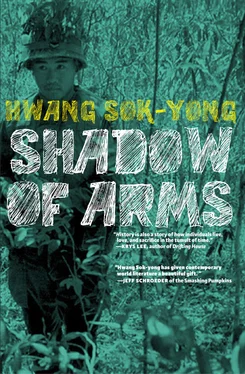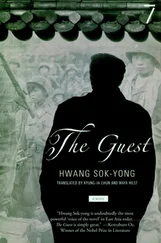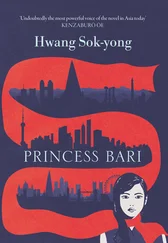They shook hands. Major Pham asked the magistrate, “How many able-bodied men do you think you can round up in An Diem and Ha Thanh?”
“Hard to say for sure without a head count, but I think we can drum up about a thousand.”
“Five hundred will be plenty. Starting today, mobilize the military administration and make an announcement about the work, saying it’ll be paid labor.”
The magistrate hesitated before speaking. “That should be easy enough, but. . our country is also facing serious financial difficulties. Won’t there be some sort of benefit for the country from this pacification project?”
“Of course there will be,” Pham Quyen said, and, lowering his voice, added, “The district administration will be able to utilize one-tenth of the mobilized workers for its own purposes. The cinnamon collected by them will be entirely at your discretion.”
The magistrate understood. The battalion commander called in a signal officer, a liaison man, and a sergeant, and busied himself setting up the command post.
“The helicopter that is going to do the warning broadcasts has taken off, sir,” said the signalman to the battalion commander.
Major Pham was dozing, sitting on a metal folding chair with his legs propped up on the desk. The magistrate’s office, now converted into a command post for sending orders to and receiving reports from all the companies in the field, was in disarray. There was constant noise from the wireless sets and confusion of signals officers popping in and out. The magistrate had gone out with his assistant to conduct a tour of the hamlets in An Diem and Ha Thanh in order to mobilize the local residents.
“Special Forces has secured the stronghold in Bien Jiang, sir,” said a communications officer.
The battalion commander was about to leave when he went over to Major Pham and very cautiously woke him up.
“Will you accompany me?”
“Yeah, uh. . what did you say?” asked Major Pham, reflexively pulling his legs down from the desk.
“I’m headed out to the operations area. Won’t you come along?”
“Operations area? Where do you mean?” mumbled Pham Quyen, still not completely awake.
“I’m going all the way out to Lien Hiep bridge. That’s where we’ve set up the defense cordon for our reconnaissance units.”
“Let’s go.”
Pham Quyen rubbed his face a few times with both hands and without further hesitation got to his feet. Lien Hiep bridge was situated at the mouth of the jungle ravines below Hill 3383. At the midpoint between the bridge and the village of Lien Hiep, the river branched into three swift-flowing tributaries that ran through deep gorges to Bien Jiang and onward turned into the Quoi River. Pham Quyen realized how important that bridge was and believed that the success of the entire operation depended on their ability to secure and hold it.
There were two open-topped Jeeps parked in front of the district administration building. The major was waiting for Pham Quyen in one. In the rear of that Jeep a guard was sitting with his back turned, holding the M60 machine gun.
“Use the other Jeep, please.”
In the second Jeep, there were two guards with submachine guns sitting on iron platforms over the rear wheels, facing left and right. The battalion commander took the seat beside the driver in the lead Jeep and Pham Quyen got on the second Jeep. They pulled out through the concrete breastworks, passed through the center of Ha Thanh, and headed down the riverside past a series of narrow rice fields.
Before long they reached the junction leading to An Diem. There was a traffic control box with sandbags piled up around it, manned by some soldiers from the reserves. Nearby, an armored personnel carrier covered with camouflage netting was parked under a palm tree. A shirtless soldier sitting on top of it was so surprised by the sight of officers that he saluted with a cigarette still between his fingers. The soldiers standing around the sandbagged sentry box, also shirtless and helmetless in the heat, also gave salutes. The lead Jeep came to a stop in front of the traffic control box, and Pham Quyen’s vehicle pulled to a stop behind.
The battalion commander, still in the Jeep, asked sharply, “Which company is this? Where’s your commander?”
The men looked at each other tentatively. The battalion commander pointed to the nearest half-naked soldier.
“You. . come over here. Who’s your commander?”
The soldier’s face, smudged with sweat and dust, contorted into an awful scowl. He stammered, “Sir, I don’t know who my commander is.
The battalion commander was about to howl at the soldier when another middle-aged soldier, naked to the waist, craned his neck out from inside the emplacement.
“Why do you ask, sir?”
“And you, who are you?”
“Master Sergeant Tam.”
“Are you in charge here?”
“Yes, sir. We’re reserve defense militia of Ha Thanh District. We’re out here to guard the road from An Diem. Who are you, officer?”
The battalion commander smirked as if he found the situation too absurd to respond, then turned back to Pham Quyen and broke into laughter. He seemed relieved to have confirmed they were not soldiers from his own units. “I am the battalion commander leading the pacification operations in the Ha Thanh area.”
“I’ll make no mistake about you in the future, sir.”
The tone of the middle-aged militiaman showed no trace of surprise. The major lost his temper.
“Look, what the hell is going on here, anyway? What kind of outfit is that? We’re in the middle of an operation but you’ve lost your shirt and helmet? There are no sentries paying attention and the commander is taking a nap, eh?”
The master sergeant turned around and examined the general appearance of his men. “Don’t worry, sir. They don’t look like much, but if a situation develops they’ll all fight well. Our magistrate was through here a while ago on the way to An Diem, and he didn’t say anything about the uniforms. If you really don’t like us, sir, we can withdraw and you can have Second Division forces come instead and defend this place.”
Pham Quyen pulled out his.45 from his belt and took the safety off. With a click, a bullet from the clip settled into the chamber. The trigger was at the ready. Pham Quyen got out and quietly approached the middle-aged soldier. Then he quickly put the muzzle of the pistol against the man’s forehead
“On your knees.”
The atmosphere grew tense. Without removing his eyes from the gun, the soldier kneeled down. Pham Quyen spoke to the other militiaman. “Bring this guy’s shirt.”
The other man, who until then had been moving very sluggishly, rushed inside the emplacement and brought out the older man’s crumpled uniform top with its master sergeant chevron insignia. Pham Quyen fired three shots into the shirt.
“Pick it up,” Pham Quyen ordered the sergeant.
The man trembled as he picked up his shirt. Sunlight slipped through the three holes in it.
“Do you know what that is?”
Not knowing how to respond, the master sergeant remained silently kneeling on the ground with his head up. This time Pham Quyen stuck the muzzle of the.45 against his cheek.
“What is it? Answer me.”
“Bull — bullet holes, sir.”
“This is an operations zone. I can execute you for dereliction of duty and insubordination here and now. Shall I make another hole through your skull?”
“Spare me, please sir.”
Pham Quyen fired another round past his ear into the ground. The master sergeant shook and grabbed his head with both hands. Pham Quyen lowered the gun and looked around at the other militiamen and then at the master sergeant, saying, “You may be in the reserves, but you are still soldiers with a duty to keep this area secure. You must conduct this operation with full responsibility. A great number of militia units have been attacked because you guys don’t take your duty seriously and do stupid things like abandon your guard posts and conduct pointless ambushes. I warn you. Opportunists that seek to evade combat are acting in the interests of the enemy. Punishment will not end with the individual in question. Sergeant, do you have a family living in town?”
Читать дальше












